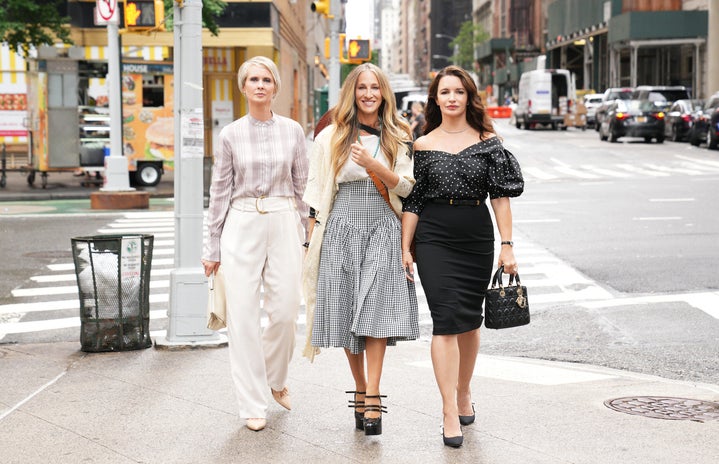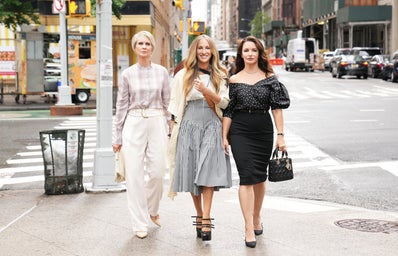(Spoilers!)
With the recent release of the Sex and the City reboot, I have been inspired to rewatch the original series, which is one of my all time favorite comfort shows. However, I have not watched the series seriously in a few years, and thus, as a result of my own personal growth and experiences, I am seeing the show in a new light. Specifically, in regards to my opinions about Carrie’s two major relationships, with Big and Aidan.
Initially, when I first watched the series a few years ago I was Team Big. As a die-hard romantic, I witnessed the couple’s effortless chemistry, and was convinced that it was true love. Evidently, as the couple ends up together at the end of the series and eventually marries in later reboots of the show, it is clear that the writers of the show intended for the viewers to share the same sentiment as me. However, despite the couple’s irrefutable connection, their relationship was extremely unhealthy and very tumultuous, until the very end. Big was an extremely successful and aloof businessman with major commitment issues, and he took YEARS to finally decide that Carrie was “the one”. Despite her denial throughout the series, Carrie was always completely in love with Big, and ready to give her all to him, even jeopardizing her relationship with Aidan. Essentially, because of Carrie’s love for Big, she would regularly overlook or excuse his toxic behavior, and allowed him to constantly toy with her emotions. It was a vicious cycle in which Big would royally screw up, hurting Carrie, and then come around later with some grand gesture to win her back. However, contrary to what the writers of the show wanted to portray, I believe that Carrie and Big’s relationship should not be idolized.
I had this realization, while rewatching season 3, when Carrie meets Aidan. Aidan is a simple and kind carpenter, and is the loving (and emotionally available) man that Carrie deserves, and I believe should have ended up with. Despite the writers’ consistent romanticization of Big throughout the series, they also subtly allude to the fact that Aidan is better for Carrie, by using her cigarette smoking habit as a metaphor. Basically, Carrie has a bad habit of smoking, which Big also indulges in and endorses. However, when Carrie starts dating Aidan, he asks her to stop, knowing the habit is extremely bad for her health. Because of her interest in Aidan, Carrie attempts to stop smoking, but eventually gives back into the habit when she begins her affair with a married Big. Although this was a minor aspect of the show, it is clear that Carrie’s cigarette habit carries a much broader meaning. Cigarettes are Carrie’s vice, and so is Big, so the fact that she starts smoking again during her affair with him is the writer’s way of acknowledging that he is bad for her.
However, despite this obvious metaphor, Carrie still runs to Big after leaving Aidan, a man who unconditionally loves her, and even forgives her for cheating. While I understand the writer’s intention to end the series this way, as Carrie was obviously more in love with Big, I disagree with it from a realistic point of view. In the end of the series, Carrie was the one to change Big, and get him to settle down. However, this is rarely the case in the real world. As I have learned through my own personal experience, you cannot change someone who’s emotionally unavailable to make them love you, and more importantly, you shouldn’t want to. A healthy love is reciprocal and consistent, two things which Big so obviously lacked. Thus, it is frustrating to me as a young woman who is looking for love, to see how the writers of Sex and the City romanticized, a man who was so obviously flawed like Big. Upon some further reflection, I realized that there was a similar trend among many shows in mainstream media. In my other favorite show, Gilmore Girls, Rory’s boyfriend Jess has major commitment issues, and even leaves her abruptly to go to California, yet his character is still romanticized. Even now, with the new popular series Euphoria, I cannot help but notice the same trend with the character Nate Jacobs. Overall, I believe this trend is extremely toxic, and sets a bad precedent for young and impressionable women, such as myself. After all, shouldn’t you want to be with someone who loves you back, not an emotionally unavailable asshole?


